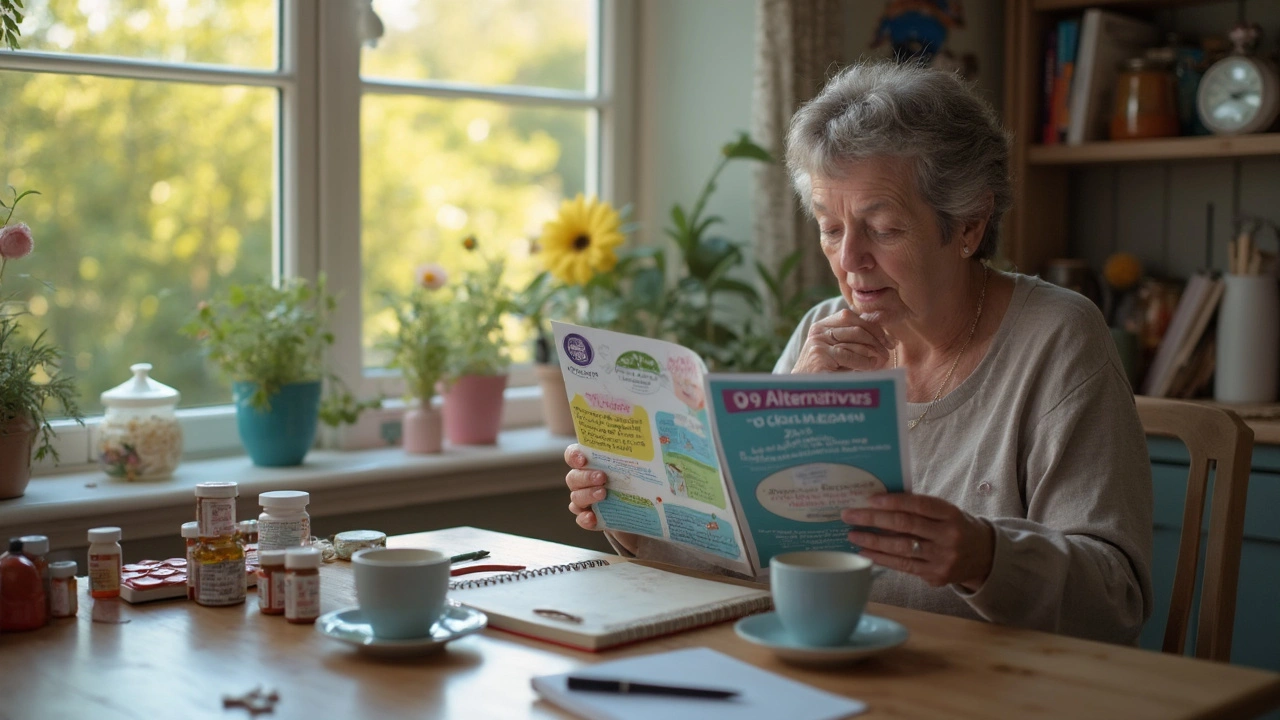Anxiety medication: what works and what to watch for
Some anxiety meds start working in days, others take weeks. Knowing which type matches your symptoms helps you and your doctor pick faster, safer relief. Below I explain the main options in plain language and give clear safety tips you can use today.
Common types and how fast they work
SSRIs (selective serotonin reuptake inhibitors) are the go-to for generalized anxiety, panic disorder, and social anxiety. Examples: sertraline, escitalopram. Expect benefits after 4–6 weeks, though some people notice improvements earlier.
SNRIs (serotonin-norepinephrine reuptake inhibitors) like venlafaxine work similarly and are another first-line choice. They can help when SSRIs don’t fully control symptoms.
Benzodiazepines — alprazolam, lorazepam — act fast. You can feel calmer within an hour. That makes them useful for panic attacks or short-term severe anxiety. But they can cause drowsiness and carry a risk of dependence if used long-term.
Buspirone is an anti-anxiety option that usually takes 2–4 weeks to show steady benefit and has lower sedation and dependence risk than benzodiazepines. Beta-blockers (like propranolol) help with physical symptoms—heart racing, trembling—especially for public speaking or performance anxiety.
Safety, side effects, and smart use
Side effects vary by drug class. SSRIs/SNRIs can cause nausea, sleep changes, or sexual side effects. Benzodiazepines cause drowsiness, memory blur, and can lead to dependence. Buspirone is gentler but not ideal for sudden panic attacks. Always discuss pregnancy, breastfeeding, liver or kidney issues with your prescriber.
Don’t stop most antidepressants suddenly—taper under medical guidance to avoid withdrawal symptoms. With benzodiazepines, use the lowest effective dose for the shortest time possible. Avoid mixing alcohol with most anxiety meds; that combo raises sedation and breathing risk.
If you take multiple drugs, ask your doctor or pharmacist about interactions. For example, combining certain antidepressants with some pain meds or herbal supplements can cause trouble. Keep a single up-to-date list of everything you take and share it at every appointment.
Buying meds online? Pick licensed pharmacies only. Look for a clear prescription policy, a visible pharmacist contact, secure checkout (HTTPS), and real customer support. Be skeptical of sites selling controlled drugs without a prescription or offering prices that look too good to be true.
Quick practical tips: start low and be patient with antidepressants, carry a list of your meds, don’t drive or operate heavy machinery until you know how a new drug affects you, and set a follow-up with your prescriber within a few weeks of starting treatment. If you notice severe side effects—worsening mood, suicidal thoughts, severe allergic reaction—get medical help right away.
Want help deciding what fits your life? Talk to your healthcare provider or a pharmacist who knows psychiatric meds. They can match your symptoms, health history, and daily routine to the safest, most effective option for you.

9 Best Alternatives to Clonazepam in 2025: Options and What to Expect
Thinking about switching from Clonazepam? There are plenty of options out there for 2025, each with its own pros and cons. This article breaks down nine real alternatives to help you navigate side effects, effectiveness, and withdrawal problems. You'll see what separates these choices, making it easier to talk to your doctor or weigh your options. Honest tips, relatable facts, and no sugarcoating the tough stuff.
© 2026. All rights reserved.
